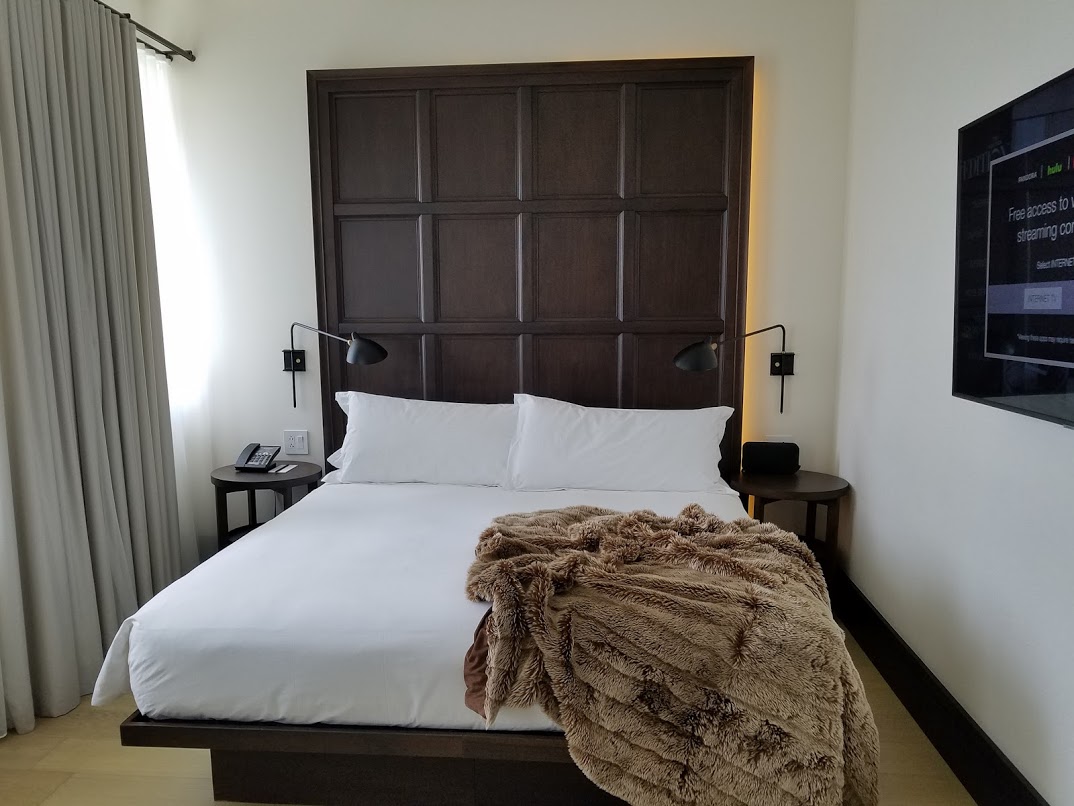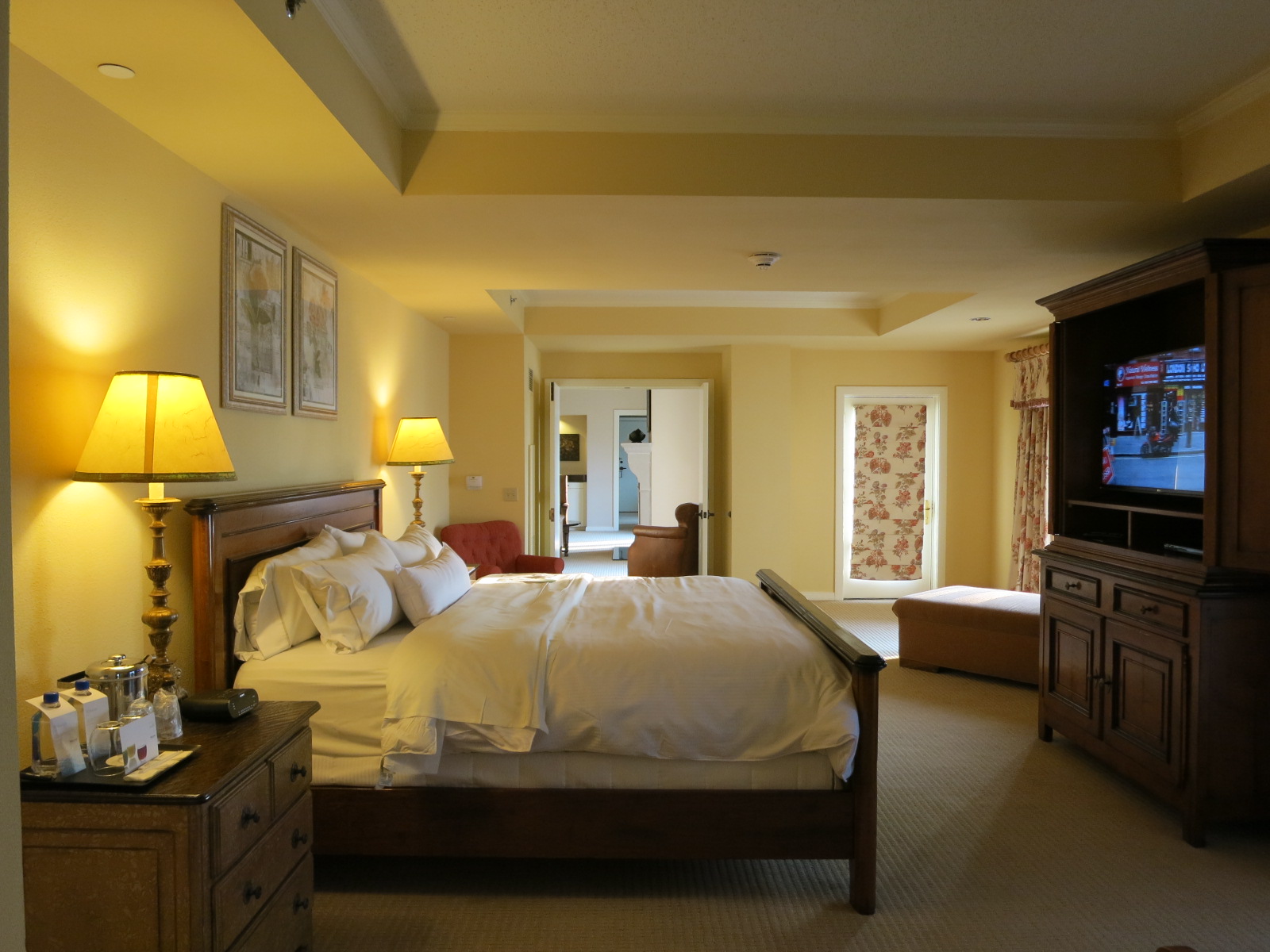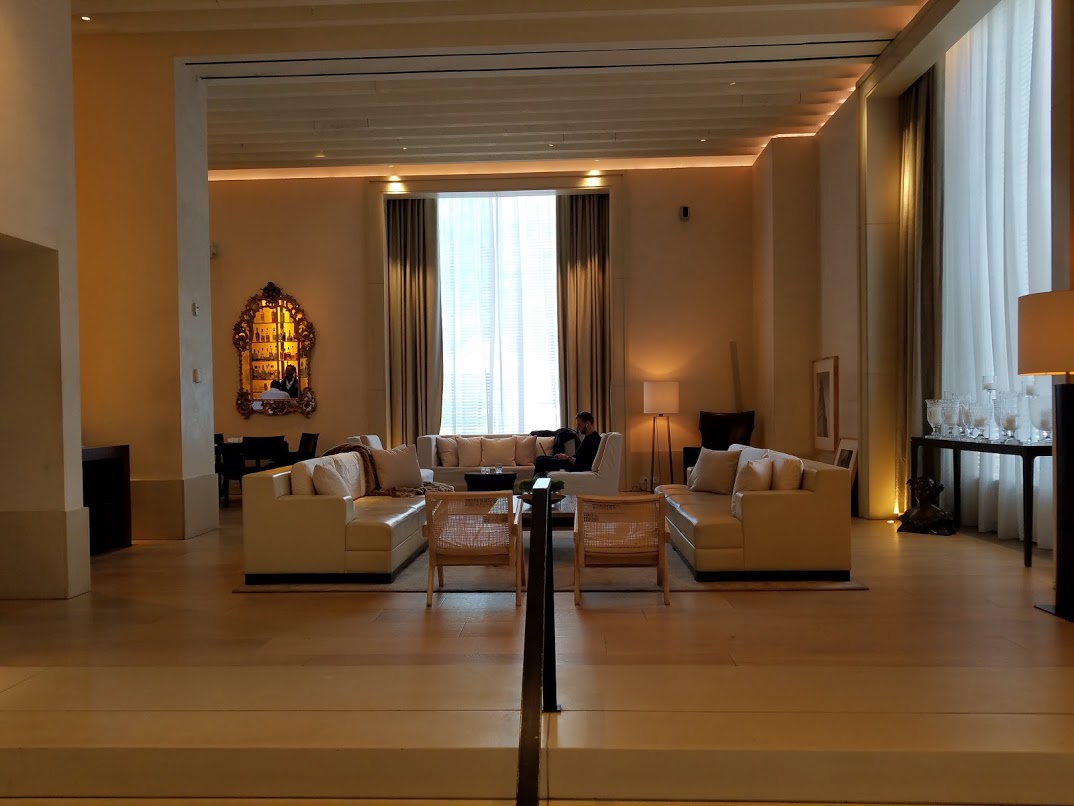Marriott CEO Anthony Capuano and CFO Leeny Oberg shared seven striking shifts, I thought, during the hotel company’s fourth quarter earnings call.

They’re seeing surging leisure rates, a move to last-minute bookings, and are managing a major tech overhaul for the business. Swelling Bonvoy membership is driving revenue – from both hotel owners and banks. How that will pair with growth from lower-end chains, and in light of still-sluggish business travel, remains unclear.
- Rates are up for leisure travelers. 44% of room nights are leisure, and it’s Marriott’s strongest performer. Revenue per available room “rose 6% globally and 4% in the U.S. and Canada, driven by gains in both room nights and [average daily rate]” and across all business segments, according to Capuano.

- But guests are booking much later. In fact, guests are now booking within 3 weeks of arrival
and that’s made projections harder. “The booking windows are still relatively short, kind of sub-three weeks, and so the ability to predict there, maybe we don’t have as much visibility as we might like or we’ve had historically.”
- Marriott is claiming leadership in lower-end hotels due to lower fees. Owners like the “simple bundled affiliation costs” Marriott is offering to low-end properties, and they believe their fees for these are “the lowest in the industry.”
We continue to have strong owner interest in all of our midscale brands given their compelling brand design, the power of our revenue engines, and their simple bundled affiliation costs which we believe are the lowest in the industry. At the end of the year, we had over 300 open and pipeline Four Points Flex, Studio Res and City Express by Marriott properties just a year and a half after entering the midscale tier.
- Everyone is a Marriott member now. Marriott “added over 31 million new members to our loyalty program last year, growing to nearly 228 million members at year end. Bonvoy member penetration of room nights achieved historic highs in the fourth quarter at 73% in the U.S. and 66% globally.”
This isn’t as good as it sounds at first blush. This is not ‘customers loyal to Marriott’ or even ‘people engaged in the Bonvoy program.’ If you want to save 2% on your room, you need to join the Marriott program for member rates. So one-off guests join the program.
However, this is great for Marriott because hotels are paying Marriott a premium for every hotel member that stays. Converting someone who was going to stay anyway into a program member generates higher revenue. The promise was that ‘member rates’ would mean guests book direct with Marriott instead of Expedia, and to some extent that happens, but it also converts direct booking guests into direct booking members at higher cost to owners.

- Their next beat was and membership growth is great for the credit card pipeline. They can market to members and turn them into credit card customers. Here’s Capuano:
As we grow that member base and our global portfolio and add travel-adjacent products and collaborations, like our 33 co-brand credit cards and tie-ups with partners like Uber and Starbucks, we are deepening engagement with our members and capturing more of our customer’s share of wallet. Driven by a strong increase in global card spend, our co-brand credit card fees rose nearly 10% last year.
And here’s CFO Leeny Oberg,
Co-brand credit card fee growth could be a couple hundred basis points lower than the nearly 10% growth in ’24, primarily due to the normalization of international card fee growth
- Marriott is about to undergo a huge tech transition and it will involve their reservation system, their property management systems, as well as their loyalty management system. This will begin to roll out later in the year and take a couple of years to complete. Capuano it means being able to sell more things to more guests:
[E]lements of that tech transformation will start to roll out later this year. We’ve talked about this a bit in the past – we think there are far reaching impacts to this transformation to all the constituents we serve, starting with Marriott associates. The simplicity and the streamlined training, we think will be a big advantage as we go out there and try to attract best-in-class talent, especially from a next generation workforce.
For our guests, we think the transformation will create tremendous capacity at the hotel level, so that our associates can better engage the guests in person. It will also meaningfully help our call agents and their ability to help with broader travel planning questions, and then we think for the owners, really advantages or opportunities both on the revenue and expense side.
Certainly on the expense side, we expect there to be enhanced efficiency, but one of the things that our owner community is most excited about, there are a wide range of products and services that we offer our guests every day beyond guest rooms – food and beverage, spa, golf, etc. The ease with which a guest can shop across all of those categories on our new reservations platform, we believe represents meaningful revenue upside for our owners.
- Business travel isn’t actually back Oberg starts with the positive spin, that “business transient has recovered to 2019 levels, just in a little bit different form. The small and medium sized businesses came back faster than the largest corporates.”
Of course that’s only some businesses whose business travelers are back, and back to levels from six years ago – not to trend (where business travel would have grown to by now). They still see fewer room nights than 2019 for large companies.
Leisure growth has offset this – but digging in more granularly and while occupancy is up that relies much more heavily on Thursday – Sunday nights but according to Oberg, “Monday-Tuesday-Wednesday are still the nights whose occupancy has not recovered.”
That’s easy to understand. The archetypal road warrior was the out Monday morning / back Thursday night consultant who spent the week at client offices. That travel hasn’t returned, because even where companies have ‘returned to office’ that doesn’t mean every employee, every day, and so it’s not necessary to have as many consultants physically on-site either. With the Monday – Thursday road warrior at lower levels than before that’s going to affect occupancy for Monday, Tuesday, and Wednesday nights.

Marriott’s Q4 call illustrates the company’s balancing act between soaring leisure demand and the slow return of business travel, leveraging loyalty growth, midscale expansion, and a large-scale tech transformation to drive future profitability.
Notably missing is any discussion of the company’s role in taking care of guests. Each time “guest” is mentioned in the call, it’s as a number (one time, as survey data) or as someone they can sell to, whether it’s more rooms, “food and beverage, spa, golf, etc.” or a more automated way in which the “guest can shop.” And it doesn’t seem to be code-switching for analysts, either.


Gary said it all right here: “Notably missing is any discussion of the company’s role in taking care of guests.” Yup, because hotel guests (like airline passengers) are not the actual customers. I don’t like this reality, but they serve the majority shareholders (the ownership class), not us.
Generally, these ‘calls’ are often a complete waste of time–literal propaganda–the cheapest of words by this or any company that is required to report.
From the actual call, I laughed out loud at “claiming leadership in lower-end hotels” — Good call to rally around the shitholes!
Also, you gotta admire the frequent use of euphemistic yet meaningless buzzwords, like ‘enhanced efficiency,’ ‘transformation,’ and ‘streamlined.’ Why not sprinkle in a few ‘sustainable,’ ‘curated,’ or ‘bespoke’ a few times, just for good measure.
Of course, no mention of the significant devaluation to the points program. Bonvoy’d yet again.
I don’t know where they get thier business travel numbers. I’m on the road at least 3 weeks a month 80% domestic, 20% intl.
Its not that business travel is down, it’s just that unless it’s absolutely my only choice, I just don’t stay at Marriott because they have given up giving AF about customer service.
Marriott has taken so much away from thier loyal customers. The way they devalued the points and how high they raised the prices to stay at their properties, both cash and with points. I have been a member for 28 years and very disappointed how greedy they have become…
Well, this might explain why Hyatt is almost exclusively focusing on resorts and all-inclusives. Marriott, meanwhile, sees its only growth coming from competitors to Motel 6 and the Red Roof Inn. Meanwhile, the full-service Marriotts, Sheratons and Renaissance properties are rudderless with no strategy.
@ Gary — Remind me, why would anyone stay with this horrible hotel company. Just say no.
Marriott sucks. Bonvoy sucks. Marriott hotel operators suck way too often. The least sucky thing about Marriott is their IT, mostly because other than folios and key cards, I don’t see it.
Gene – because they have a lot of good hotels!
An interesting focus on the call was how Marriott was spending more money to get developer deals (especially on the high end, but increasingly for mid tier properties). To answer FNT – developers are reluctant to do higher end brand deals because the properties are expensive to build, finance, and to operate, with unclear revenue potential given the trends around business travel. So Marriott and others have to kick in a bit more money, with investors don’t like.
And remember, people like the readers of the blog contribute to the “expensive to run” part by demanding breakfast, late check-out, suite upgrades and the like.
“I don’t know where they get thier business travel numbers. I’m on the road at least 3 weeks a month 80% domestic, 20% intl.”
The numbers are very accurate. Business travel is in the toilet compared to five years ago whereas Friday & Saturday night group/transient travel has never been better/more robust and consistent.
When little Timmy has his lacrosse/soccer/baseball tournament, his parents will pay whatever because they “have to be there”. The same as festivals, fairs, concerts, weddings, mitzvahs, college sports teams, etc.
You can jackhammer them with rates that are 20%-40% higher than what they were in ’21-’22 but if you talk about a $5 a night increase on XYZ mega insurance carrier, who only sends you 1/4 of the business they did in ’21-’22, they threaten to pull the rest because they can’t afford the increase.
It’s a wild world.
@Anthony — Tell us again how you’re NOT a corporate shill. How dare we want to eat ‘breakfast’ in accordance with the program that we spend ample money on–shame on us–such lazy, selfish customers!
@ Anthony — Any hotel that doesn’t honor PROMISED elite beneifts is not a good hotel. The vast majority of the time, I would rather stay in a lower-quality property that meets or exceeds my expectations. Life is too short for me to have to be pissed off every time I check in with a lying hotel company.
Marriott doesn’t say anything about improving things for guests? Show of hands for everyone who’s surprised. Anyone? Anyone? Hello?
As a recent lifetime platinum I’ll stay at a Marriott if there’s no other reasonable choice but otherwise I prefer to stay with a company that doesn’t loathe me as an engaged loyalty member and as a guest.
I bet that’s why more of their bookings are booking 3 weeks ahead or less too, people just looking what hotels are available in the area and booking a few weeks ahead, rather than seeking out a Marriott in particular.
@hwertz
Also, the rates usually shown in the search engines are typically the non-refundable rates. Digging in to find a rate you can cancel for full refund if your plans change at each hotel in the search is too time consuming.
So, folks just wait until the last minute when they know their plans are set before they book a non-refundable room. The hotels are doing this to themselves.
Given the reported surge, Marriott has absolutely no reason to not continue its path of Bonvoy devaluation.
@Fred — ‘No reason?’ Umm, more ‘profits’ (over people) is often always the reason for any decision in business. Short term? Quick win! Who cares about tomorrow! Long term? Not their problem! You have to think of who the ‘actual’ customers are.
If the ‘customers’ are the hotel guests and program members, then in the long term, these MBA-types are messing up big-time (they’re going to piss off their most frequent spenders).
But if it’s just franchisees, property owners, and shareholders who they consider to be their ‘customers,’ then Marriott is the best it’s ever been for them–Like, they love getting Bonvoy’d.